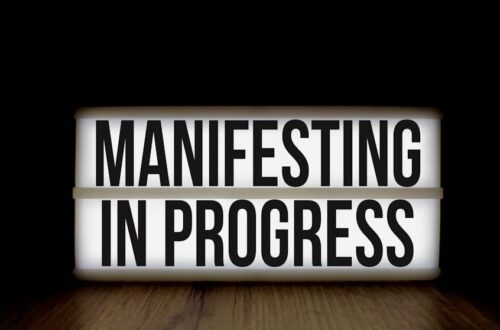Focus Keyword: Mindset Shifts
Welcome to Self IQ, where smarter growth leads to a stronger you. In today’s fast-paced world, the ability to adapt, learn, and grow is more essential than ever. At the heart of every breakthrough—personal, professional, or emotional—lies one common thread: mindset shifts. These powerful changes in perspective can transform how you approach challenges, relationships, and your own potential. By understanding and practicing key mindset shifts, you can unlock new levels of growth and fulfillment.
1. Embrace a Growth Mindset
What if you believed that your abilities and intelligence weren’t fixed, but could be developed through effort and perseverance? This is the essence of the growth mindset. Instead of seeing setbacks as failures, those with a growth mindset view them as opportunities to learn and improve. When you shift from a fixed mindset—where talents are seen as innate and unchangeable—to a growth mindset, you open the door to continuous improvement.
Consider how you approach challenges. Do you avoid them out of fear of failure, or do you see them as chances to stretch your skills? By practicing a growth mindset, you become more resilient, motivated, and open to feedback. This shift doesn’t happen overnight. It requires self-awareness, a willingness to challenge old beliefs, and the courage to step outside your comfort zone. Over time, you’ll notice that challenges become less intimidating and more like stepping stones toward your goals.
To cultivate a growth mindset, start by reframing your self-talk. Replace statements like “I can’t do this” with “I can learn how to do this.” Celebrate effort as much as outcomes, and seek feedback as a tool for growth rather than criticism. Remember, every skill you admire in others was once unfamiliar to them too. With dedication and a growth-oriented attitude, you can achieve remarkable progress.
2. See Possibilities, Not Limitations
Our minds are powerful storytellers. When faced with obstacles, it’s easy to focus on what’s not possible, listing reasons why something won’t work. This is the scarcity mindset at play—where limitations and fears dominate your thinking. Shifting to a possibility mindset means consciously choosing to see options, opportunities, and creative solutions where others see roadblocks.
This shift isn’t about ignoring reality or pretending challenges don’t exist. Instead, it’s about asking better questions. Instead of “Why can’t I do this?” ask “What would it take to make this possible?” This simple reframe opens your mind to new resources and pathways. It encourages innovation and resilience, especially when things don’t go as planned.
Start by becoming aware of your internal dialogue when you encounter difficulties. Are you quick to list reasons something won’t work, or do you brainstorm ways it could? Practice challenging limiting beliefs and replacing them with empowering ones. Surround yourself with people who inspire possibility thinking, and expose yourself to stories of individuals who turned obstacles into opportunities. Over time, you’ll find yourself habitually looking for solutions instead of getting stuck on problems.
3. Shift from Fear of Failure to Embracing Learning
Fear of failure is one of the biggest barriers to personal growth. It can keep you stuck, prevent you from taking risks, and rob you of valuable learning experiences. The truth is, failure is not the opposite of success—it’s a crucial part of the journey. When you shift your mindset to view failures as feedback, every setback becomes a lesson that moves you closer to your goals.
This mindset shift requires vulnerability and self-compassion. Instead of beating yourself up over mistakes, ask what you can learn from the experience. Reflect on what worked, what didn’t, and how you can adjust your approach next time. Remember, some of the world’s most successful people credit their achievements to lessons learned from past failures.
To embrace this shift, redefine what failure means to you. See it as a sign of effort and experimentation, not incompetence. Celebrate your willingness to try new things, even if the outcome isn’t perfect. The more you practice this, the less power fear will have over your actions. Over time, you’ll develop greater resilience, adaptability, and confidence to pursue your ambitions boldly.
4. Move from Scarcity to Abundance Thinking
Scarcity thinking is rooted in the belief that resources—such as success, love, or happiness—are limited. This mindset can breed competition, jealousy, and anxiety. In contrast, an abundance mindset recognizes that there is enough to go around and that others’ successes do not diminish your own. When you adopt abundance thinking, you become more generous, collaborative, and optimistic.
This shift starts with gratitude. By focusing on what you have, rather than what you lack, you train your brain to notice opportunities and blessings. Practice acknowledging your strengths, achievements, and the support you receive from others. When you see someone else succeed, celebrate their accomplishments and use them as inspiration for your own journey.
Abundance thinking also encourages you to share knowledge, resources, and opportunities. Instead of guarding your ideas or fearing competition, collaborate and uplift others. You’ll find that generosity creates a positive cycle—what you give often returns to you in unexpected ways. Over time, this mindset fosters stronger relationships, greater satisfaction, and a sense of interconnectedness with those around you.
5. Reframe Negative Self-Talk into Empowering Dialogue
We all have an inner critic—a voice that points out our flaws, doubts our abilities, and fears the worst. Left unchecked, negative self-talk can erode your confidence and limit your potential. The good news is, you can train your mind to recognize and reframe these thoughts into empowering dialogue.
Start by noticing the language you use when you make mistakes or face challenges. Are your thoughts harsh and critical, or supportive and encouraging? When you catch yourself thinking negatively, pause and ask: “Is this thought helping me or holding me back?” Replace self-defeating statements with ones that affirm your strengths and possibilities.
For example, change “I always mess up” to “I’m learning and improving with each attempt.” Over time, this practice rewires your brain to default to more constructive, compassionate self-talk. The result is greater self-esteem, motivation, and resilience in the face of setbacks.
Empowering self-dialogue isn’t about ignoring weaknesses or pretending everything is perfect. It’s about being honest with yourself while choosing to focus on growth, learning, and solutions. This mindset shift creates a foundation for lasting confidence and personal development.
6. Cultivate Openness to Change and Adaptability
Change is a constant in life, yet many people resist it out of fear or discomfort. The ability to adapt and remain open to new experiences is a vital mindset shift for growth. When you embrace change, you become more flexible, creative, and equipped to handle whatever life throws your way.
Openness to change starts with curiosity. Instead of fearing the unknown, approach it with a desire to learn and explore. Ask yourself, “What new opportunities could this change bring?” Practice letting go of rigid expectations and being willing to adjust your plans as needed.
Adaptability also means accepting that setbacks and detours are part of the journey. Rather than seeing them as failures, view them as opportunities to develop new skills and perspectives. The more you practice adapting to change, the more resilient and resourceful you become. This mindset empowers you to thrive in a world that is always evolving.
7. Prioritize Self-Compassion Over Perfectionism
Perfectionism can be a double-edged sword. While it may drive you to achieve high standards, it often leads to stress, procrastination, and self-criticism. Shifting from perfectionism to self-compassion means accepting that mistakes and imperfections are part of being human.
Self-compassion involves treating yourself with the same kindness and understanding you would offer a friend. When you fall short of your goals, instead of harshly judging yourself, acknowledge your efforts and offer encouragement. This shift doesn’t mean lowering your standards—it means recognizing that growth is a process, and setbacks are opportunities for learning, not reasons for shame.
Practice self-compassion by celebrating progress, no matter how small. Remind yourself that everyone struggles at times and that your worth is not defined by your achievements. Over time, this mindset shift reduces anxiety, increases motivation, and fosters a healthier relationship with yourself and your goals.
Sources
- https://focuskeeper.co/glossary/what-is-mindset-shifts
- https://www.psychologytoday.com/us/blog/seeing-what-others-dont/202303/shifting-mindsets-what-does-it-take
- https://peopledevelopmentmagazine.com/2023/01/26/mindset-shifts/
- https://www.personalgrowthmagazine.com/7-life-changing-mindset-shifts/





